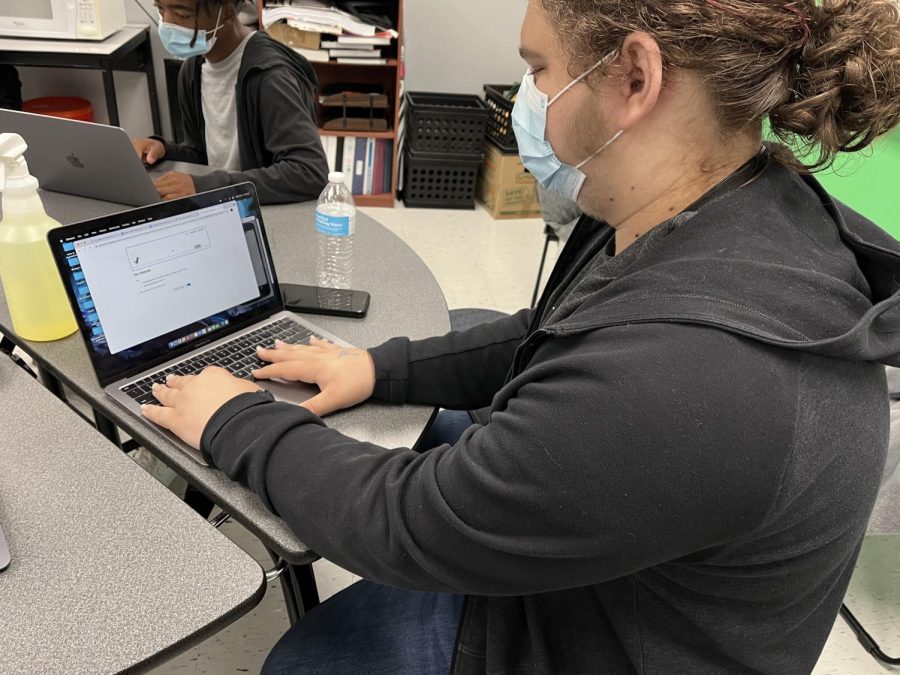The Flip Side of Gaming: Despite Popular Opinion, Gaming Can Help
One of the most popular games available to students is the offline Dinosaur Game. Here, freshman Hayden Gust attempts to survive as they can in the Dinosaur Game.
October 6, 2021
While most of the popular rhetoric in the media discusses the dangers of gaming for teens, an often overlooked aspect is the mental escapism that the games offer. Those can be lifesavers for kids facing trauma.
According to Mr. Doig, SSD teacher and Gaming Club sponsor, games are very helpful for building motor skills and reflexes. So that way kids are more aware of their surroundings and are able to defend themselves either with or without a self-defense weapon. “Games are a good distraction, and they help you be better,” Mr. Doig said.
Contrasting opinions about violence caused by games, Mr. Doig said, “Games do not engage in violence and engage in cooperation.”
“The game that I play is a stress reliever and it helps me get motivated to do my homework. When I get home from school, I need to relieve stress and regain focus, and Call of Duty helps me do that,” Genesis Pegues, a senior, explained.
Hayden Gust, a freshman, agrees. “It helps me burn time while actively using my mind.”
A February 2014 article on the American Psychological Association’s website explores the positive aspects of gaming. “A 2013 meta-analysis found that playing shooter games improved a player capacity to think about objects in three dimensions just as well as academic courses designed to enhance these same skills,” the study found.
Video games can help with reaction time, social relations, and emotional well-being.


